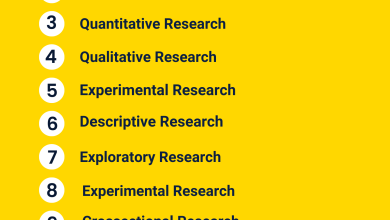10 Reasons to Choose Digital Marketing as a Career

Digital marketing encompasses a broad range of online strategies and channels used by businesses to promote their products, services, and brand. Unlike traditional marketing, digital marketing leverages digital channels such as the internet, social media, search engines, email, and other digital platforms to connect with target audiences. It involves a variety of tactics, including search engine optimization (SEO), social media marketing, content marketing, email marketing, and online advertising, with the goal of reaching, engaging, and converting potential customers. Digital marketing career is dynamic, data-driven, and allows for precise targeting, making it a crucial component of modern marketing strategies.
Lets discuss below 10 reasons why one should choose digital marketing as a career:
- High Demand: With businesses shifting online, there is a constant and growing demand for digital marketing professionals.
- Diverse Opportunities: Digital marketing offers a wide range of career options, including content creation, social media management, SEO, analytics, and more.
- Global Reach: Digital marketing allows you to reach a global audience, providing opportunities to work on international campaigns.
- Creativity: It allows you to unleash your creative side, from designing engaging content to developing innovative campaigns.
- Measurable Results: Digital marketing provides real-time analytics, allowing you to measure the success of campaigns and strategies.
- Constant Learning: The field is dynamic, ensuring that you are always learning and adapting to new technologies and trends.
- Flexibility: Many digital marketing roles offer the flexibility of remote work, making it suitable for a variety of lifestyles.
- Cost-Effective: Digital marketing can be more cost-effective than traditional methods, making it appealing to businesses with limited budgets.
- Entrepreneurial Opportunities: Knowledge of digital marketing is crucial for those looking to start their own businesses or ventures.
- Job Security: As long as businesses operate online, the need for digital marketing professionals will persist, providing job security in the digital era.
How to Apply for a Digital Marketing Course:
- Research Courses: Look for digital marketing courses offered by reputable institutions or online platforms. Consider factors such as course content, duration, and reviews.
- Choose Specialization: Digital marketing has various specializations. Choose a course that aligns with your career goals, whether it’s SEO, social media marketing, content creation, etc.
- Check Prerequisites: Make sure you are up to date with the course requirements. Some courses might require you to be familiar with marketing or digital technology.
- Enroll Online: Many digital marketing courses are available online. Enroll through the official website of the course provider or through reputable online learning platforms.
- Offline Courses: If you prefer in-person learning, check with local educational institutions, universities, or training centers offering digital marketing courses.
- Explore Certification: Look for courses that provide certifications recognized in the industry. Certifications can enhance your credibility when applying for jobs.
- Commit to Learning: Once enrolled, dedicate time to consistently engage with the course material, participate in assignments, and apply what you learn.
- Network: Take advantage of networking opportunities within the course, connecting with instructors and fellow learners. Networking is valuable in the digital marketing industry.
- Apply Knowledge Practically: Digital marketing is best learned through practical application. Work on real projects, create a portfolio, and stay updated on industry trends.
Embarking on a digital marketing course can open doors to a dynamic and rewarding career in the ever-evolving world of online promotion and engagement.
Popular Digital Marketing Methods
Several popular digital marketing methods are widely employed by businesses to enhance their online presence, connect with their target audience, and drive engagement. Here are some of the most prevalent digital marketing methods:
- Search Engine Optimization (SEO): Optimizing website content and structure to improve organic (non-paid) visibility on search engine results pages, thus increasing traffic.
- Social Media Marketing: Utilizing social media platforms (such as Facebook, Instagram, Twitter, and LinkedIn) to connect with audiences, build brand awareness, and promote products or services.
- Content Marketing: Creating and distributing valuable, relevant, and consistent content to attract and engage a target audience, with the aim of driving profitable customer action.
- Email Marketing: Sending targeted messages and promotional content to a group of subscribers or potential customers via email, often used for customer retention and lead nurturing.
- Pay-Per-Click (PPC) Advertising: Placing online ads where advertisers pay a fee each time their ad is clicked. Common platforms for PPC include Google Ads and social media advertising.
- Affiliate Marketing: Partnering with affiliates who promote a company’s products or services and earn a commission for each sale or click generated through their marketing efforts.
- Influencer Marketing: Collaborating with influencers, individuals with a significant online following to promote products or services and leverage their influence to reach a wider audience.
- Video Marketing: Creating and sharing video content to convey messages, showcase products, or engage with the audience. Platforms like YouTube and TikTok are popular for video marketing.
- Mobile Marketing: Targeting users on mobile devices through methods such as mobile apps, SMS marketing, or responsive website design.
- Web Analytics and Data Analysis: Employing tools like Google Analytics to track and analyze user behavior, enabling businesses to make informed decisions based on data-driven insights.















